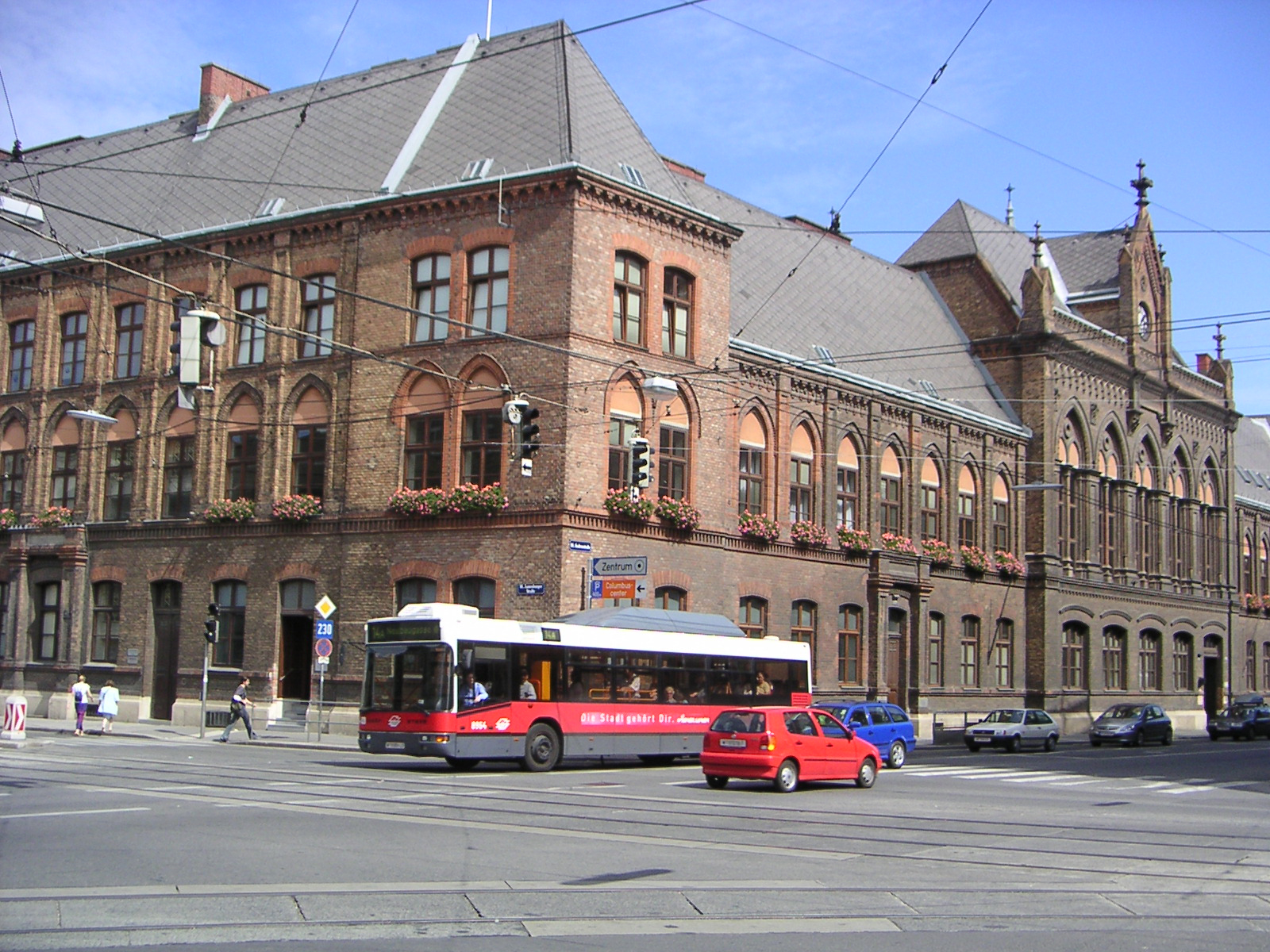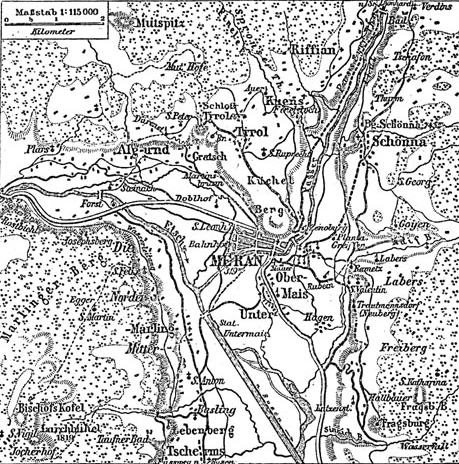|
Felix Czeike
Felix Czeike (21 August 1926 – 23 April 2006) was an Austrian historian and popular educator. He was an author and partly also editor of numerous publications on the history of Vienna and was the director of the . His main work is the six-volume ''Historische Lexikon Wien''. Life Czeike, born in Favoriten (10th district of Vienna), studied history, geography, German studies and art history at the University of Vienna and received his doctorate in philosophy in 1950. From 1954 he worked in the Vienna City and State Archives, and in 1976 took over their management, which he held until his retirement in 1989. In 1977 he founded the Vienna branch of the Ludwig Boltzmann Gesellschaft for urban history research, which was integrated into the City and State archives, and which he headed until his death. From 1993 to 2003 he was president of the . In 1979 he was appointed associate professor at the University of Vienna, and in 1985 was awarded the title ''Hofrat'' by the Federal Presi ... [...More Info...] [...Related Items...] OR: [Wikipedia] [Google] [Baidu] |
Favoriten
Favoriten (; Central Bavarian: ''Favoritn''), the 10th district of Vienna, Austria (german: 10. Bezirk, Favoriten), is located south of the central districts. It is south of Innere Stadt, Wieden and Margareten. Favoriten is a heavily populated urban area with many residential buildings, but also large recreational areas and parks. Wien-Vienna.at webpage (see below: References). Wien.gv.at webpage (see below: References). The name comes from ''Favorita'', a semi- baroque palace complex that once served as a hunting castle but today is the Theresianum a Gymnasium (middle and high school) in the 4th district ( Wieden). The customs facilities at the original southern border of Vienna were known as the ''Favoriten-Linie'' (Favoriten Line) while nearby houses were known as the ''Siedlung vor der Favoriten-Linie'' (Settlement in front of the Favoriten Line). District sections The Favoriten District includes 6 sections: Katastralgemeinden Favoriten, Inzersdorf-Stadt, Rothneus ... [...More Info...] [...Related Items...] OR: [Wikipedia] [Google] [Baidu] |
Austrian Decoration For Science And Art
The Austrian Decoration for Science and Art (german: Österreichisches Ehrenzeichen für Wissenschaft und Kunst) is a state decoration of the Republic of Austria and forms part of the Austrian national honours system. History The "Austrian Decoration for Science and Art" was established by the National Council as an honour for scientific or artistic achievements by Federal Law of May 1955 ( Federal Law Gazette No. 96/1955 as amended BGBl I No 128/2001). At the same time, the National Council also established the "Austrian Cross of Honour for Science and Art", which is awarded as "Cross of Honour, First Class" (German: ''Ehrenkreuz 1. Klasse'') and "Cross of Honour" (German: ''Ehrenkreuz''). While not technically counted as lower classes of the Decoration for Science and Art, these crosses are nevertheless affiliated with it. Divisions Decoration for Science and Art The number of living recipients of the Decoration for Science and Art is limited to a maximum of 72 at an ... [...More Info...] [...Related Items...] OR: [Wikipedia] [Google] [Baidu] |
Austrian Art Historians
Austrian may refer to: * Austrians, someone from Austria or of Austrian descent ** Someone who is considered an Austrian citizen, see Austrian nationality law * Austrian German dialect * Something associated with the country Austria, for example: ** Austria-Hungary ** Austrian Airlines (AUA) ** Austrian cuisine ** Austrian Empire ** Austrian monarchy ** Austrian German (language/dialects) ** Austrian literature ** Austrian nationality law ** Austrian Service Abroad ** Music of Austria ** Austrian School of Economics * Economists of the Austrian school of economic thought * The Austrian Attack variation of the Pirc Defence chess opening. See also * * * Austria (other) * Australian (other) Australian(s) may refer to: Australia * Australia, a country * Australians, citizens of the Commonwealth of Australia ** European Australians ** Anglo-Celtic Australians, Australians descended principally from British colonists ** Aboriginal Au ... * L'Autrichienne (d ... [...More Info...] [...Related Items...] OR: [Wikipedia] [Google] [Baidu] |
Writers From Vienna
A writer is a person who uses written words in different writing styles and techniques to communicate ideas. Writers produce different forms of literary art and creative writing such as novels, short stories, books, poetry, travelogues, plays, screenplays, teleplays, songs, and essays as well as other reports and news articles that may be of interest to the general public. Writers' texts are published across a wide range of media. Skilled writers who are able to use language to express ideas well, often contribute significantly to the cultural content of a society. The term "writer" is also used elsewhere in the arts and music, such as songwriter or a screenwriter, but also a stand-alone "writer" typically refers to the creation of written language. Some writers work from an oral tradition. Writers can produce material across a number of genres, fictional or non-fictional. Other writers use multiple media such as graphics or illustration to enhance the communication of t ... [...More Info...] [...Related Items...] OR: [Wikipedia] [Google] [Baidu] |
University Of Vienna Alumni
A university () is an institution of higher (or tertiary) education and research which awards academic degrees in several academic disciplines. ''University'' is derived from the Latin phrase ''universitas magistrorum et scholarium'', which roughly means "community of teachers and scholars". Universities typically offer both undergraduate and postgraduate programs. The first universities in Europe were established by Catholic Church monks. The University of Bologna (), Italy, which was founded in 1088, is the first university in the sense of: *being a high degree-awarding institute. *using the word ''universitas'' (which was coined at its foundation). *having independence from the ecclesiastic schools and issuing secular as well as non-secular degrees (with teaching conducted by both clergy and non-clergy): grammar, rhetoric, logic, theology, canon law, notarial law.Hunt Janin: "The university in medieval life, 1179–1499", McFarland, 2008, , p. 55f.de Ridder-Symoens, Hild ... [...More Info...] [...Related Items...] OR: [Wikipedia] [Google] [Baidu] |
2006 Deaths
File:2006 Events Collage V1.png, From top left, clockwise: The 2006 Winter Olympics open in Turin; Twitter is founded and launched by Jack Dorsey; The Nintendo Wii is released; Montenegro votes to declare independence from Serbia; The 2006 FIFA World Cup in Germany is won by Italy; Gol Transportes Aéreos Flight 1907 crashes in the Amazon rainforest after a mid-air collision with an Embraer Legacy 600 business jet; The 2006 Yogyakarta earthquake kills over 5,700 people; The IAU votes on the definition of "planet", which demotes Pluto and other Kuiper belt objects and redefines them as " dwarf planets"., 300x300px, thumb rect 0 0 200 200 2006 Winter Olympics rect 200 0 400 200 Twitter rect 400 0 600 200 Nintendo Wii rect 0 200 300 400 IAU definition of planet rect 300 200 600 400 2006 Montenegrin independence referendum rect 0 400 200 600 2006 Yogyakarta earthquake rect 200 400 400 600 Gol Transportes Aéreos Flight 1907 rect 400 400 600 600 2006 FIFA World Cup 2 ... [...More Info...] [...Related Items...] OR: [Wikipedia] [Google] [Baidu] |
1926 Births
Events January * January 3 – Theodoros Pangalos declares himself dictator in Greece. * January 8 **Abdul-Aziz ibn Saud is crowned King of Hejaz. ** Crown Prince Nguyễn Phúc Vĩnh Thuy ascends the throne, the last monarch of Vietnam. * January 12 – Freeman Gosden and Charles Correll premiere their radio program ''Sam 'n' Henry'', in which the two white performers portray two black characters from Harlem looking to strike it rich in the big city (it is a precursor to Gosden and Correll's more popular later program, ''Amos 'n' Andy''). * January 16 – A BBC comic radio play broadcast by Ronald Knox, about a workers' revolution, causes a panic in London. * January 21 – The Belgian Parliament accepts the Locarno Treaties. * January 26 – Scottish inventor John Logie Baird demonstrates a mechanical television system at his London laboratory for members of the Royal Institution and a reporter from ''The Times''. * January 29 – Eugene O'Neill's ... [...More Info...] [...Related Items...] OR: [Wikipedia] [Google] [Baidu] |
Decoration Of Honour For Services To The Republic Of Austria
The Decoration of Honour for Services to the Republic of Austria (german: Ehrenzeichen für Verdienste um die Republik Österreich) is a state decoration of the Republic of Austria. It is divided into 15 classes and is the highest award in the Austrian national honours system. History The Decoration of Honour for Services to the Republic of Austria was first established by federal law on 4 November 1922. It initially had ten grades; later, it was expanded to sixteen grades. It was replaced in 1934 by the Austrian Order of Merit (''Österreichischer Verdienstorden''). The modern iteration of the Decoration of Honour for Services to the Republic of Austria was established by the National Council in 1952. It is conferred by the Republic of Austria to honour people (from Austria and abroad) who have rendered meritorious services to the country. Recipients are selected by the government. The awards are made by the President in accordance with the respective laws. The State Presi ... [...More Info...] [...Related Items...] OR: [Wikipedia] [Google] [Baidu] |
Hietzing Cemetery
The Hietzing Cemetery is a cemetery in Hietzing, the 13th district of Vienna. Notable burials (selection) * Alban Berg (1885–1935), composer * Jean-Baptiste Clery (1759–1809), valet to King Louis XVI * Franz Conrad von Hötzendorf (1852–1925), Chief of the Austro-Hungarian General Staff 1906 to 1917 * Heinz Conrads (1913–1986), actor * Engelbert Dollfuss (1892–1934), politician * Gottfried von Einem (1918–1996), composer * Fanny Elssler (1810–1884), ballerina * Franz Grillparzer (1791–1872), writer * Josef Josephi (1852–1920), singer and actor * Ernst Kirchweger (1898–1965), victim of political violence * Gustav Klimt (1862–1918), painter * Viktor Léon (1858–1940), librettist * Hubert Marischka (1882–1959), operetta tenor, actor, film director and screenwriter * Koloman Moser (1868-1918), artist and designer * Sabine Oberhauser (1963–2017), politician * Rudolf Prack (1905–1981), actor * Katharina Schratt (1853-1940), Emperor Franz J ... [...More Info...] [...Related Items...] OR: [Wikipedia] [Google] [Baidu] |
Districts Of Vienna
The districts of Vienna ( German: ''Wiener Gemeindebezirke'') are the 23 named city sections of Vienna, Austria, which are numbered for easy reference. They were created from 1850 onwards, when the city area was enlarged by the inclusion of surrounding communities. Although they fill a similar role, Vienna's municipal districts are not administrative districts (''Bezirke'') as defined by the federal constitution; Vienna is a statutory city and as such is a single administrative district in its entirety. The seats of ''Bezirksvorsteher'' (political district head) and ''Bezirksvertretung'' (district assembly) are located in the respective districts, with the exception of the 14th district, whose political representatives reside in the 13th district (to which much of the 14th had belonged until 1938). The ''Magistratisches Bezirksamt'' (district office of the city administration, not headed by the political district head) in four locations combines services for two districts: :* fo ... [...More Info...] [...Related Items...] OR: [Wikipedia] [Google] [Baidu] |
Merano
Merano (, , ) or Meran () is a city and ''comune'' in South Tyrol, northern Italy. Generally best known for its spa resorts, it is located within a basin, surrounded by mountains standing up to above sea level, at the entrance to the Passeier Valley and the Vinschgau. In the past, the city has been a popular place of residence for several scientists, literary people, and artists, including Franz Kafka, Ezra Pound, Paul Lazarsfeld, and also Empress Elisabeth of Austria, who appreciated its mild climate. Name Both the Italian () and the German () names for the city are used in English. The Ladin form of the name is . The official name of the municipality (''comune'') is ''Comune di Merano'' in Italian and ''Stadtgemeinde Meran'' in German (both are in official use). History In 17th-century Latin, the city was called ''Meranum''. Other archaic names are ''Mairania'' (from 857 AD) and ''an der Meran'' (from the 15th century). Origin The area has been inhabited since the third ... [...More Info...] [...Related Items...] OR: [Wikipedia] [Google] [Baidu] |







